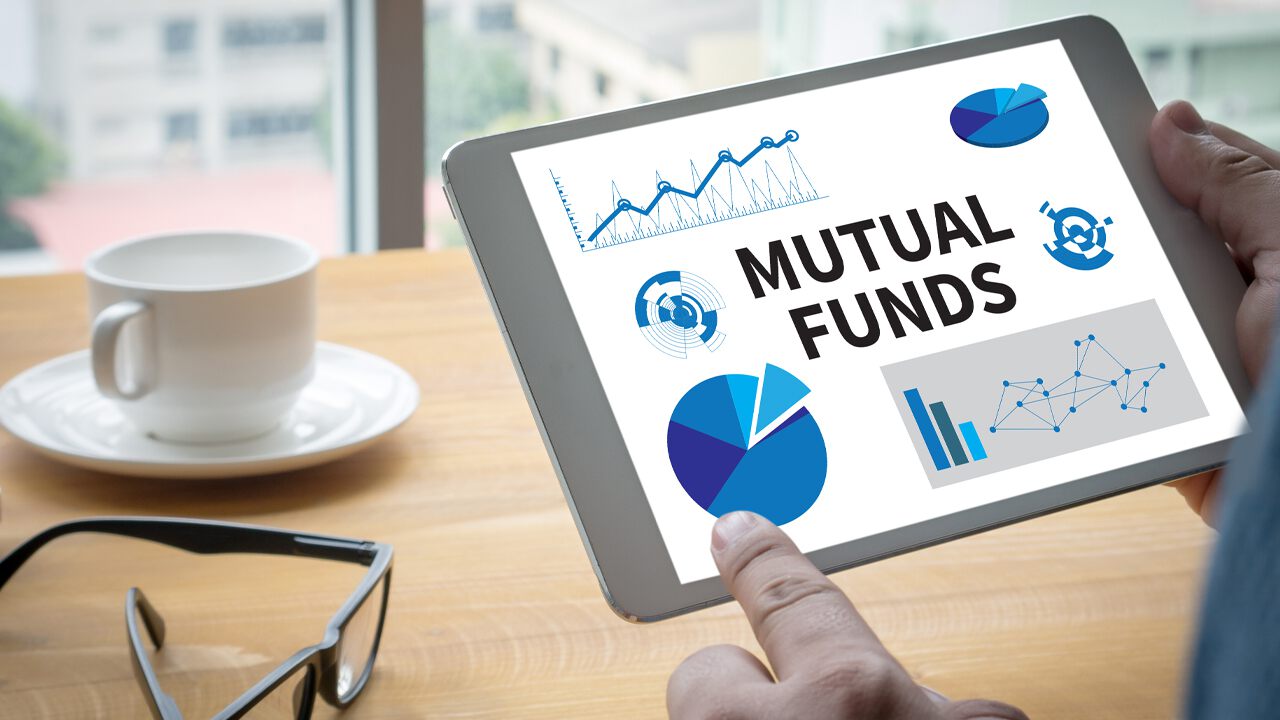We want to introduce you to a straightforward investing strategy called “Mutual Funds” if you are beginners to investment and have little extra money to invest for at least three years.

What is the Concept of Mutual Funds?
A mutual fund is a form of long-term investment that involves investing the capital from numerous individuals together in common securities like bonds, equities, and short-term debt.
Mutual fund shares are purchased by investors. An investor’s ownership stake in the fund and the revenue it produces are represented by each share.
8 Types of Mutual Funds
Different types of mutual funds that have been designed to meet the requirements of different investment goals and risk tolerance levels exist.
- Equity funds: Equity funds in Pakistan are mutual funds that invest in shares listed in Pakistan at the stock exchange market platform, PSX.
- Debt funds: Debt funds that concentrate on fixed-income assets, such as corporate and government bonds, treasury bills, and other debt instruments, are also referred to as fixed-income funds. Compared to equities funds, they usually offer a reduced chance along with a lower possible return.
- Balanced or Hybrid Funds: The goal of these funds is to achieve a balanced portfolio by investing capital in a combination of fixed-income and equity securities. They are able to maintain the proper ratio of risk and possible return between debt and equity funds.
- Money Market Funds: The capital of these funds is allocated to short-term, low-risk securities, such as certificates of deposit, paper for business, and Treasury bills. Simultaneously, they strive to achieve primary stability while generating moderate returns.
- Index funds: Index investment funds aim to replicate the performance of an index of the market, such as the S&P 500 or the FTSE 100. They allow for broad market coverage at the most affordable possible management fees.
- International or Global Funds: These funds provide exposure to international prospects while providing diversification advantages by investing in assets from markets beyond the investor’s nation.
- Index exchange-traded funds or ETFs: These funds trade on stock markets like individual equities, but they track particular indices similarly to index funds. They usually allow for day trading and are more tax-friendly than regular mutual funds.
- Specialty Funds: These funds make investments in commodities, real estate, infrastructure projects, and other non-traditional or unconventional investment categories.
Every type of mutual fund is designed to meet the demands and objectives of a certain set of investors. It has a unique investment strategy and risk-return profile.

Why Invest in Mutual Funds?
- Diversification: You can invest in a variety of asset classes through mutual funds, such as equities, bonds, and commodities, both domestically and internationally.
- Low Prices: Compared to individual investing, a mutual fund’s transaction costs are usually lower since it purchases and sells a large number of assets all at once.
- Easy Accessibility: Mutual fund purchases don’t have to be challenging. In addition to their range of mutual funds, many banks and brokerage firms provide thousands of third-party funds.
- Expert Supervision: You benefit from having knowledgeable management that reviews and analyses the fund’s portfolio on a regular basis.

Keep these Things in Mind Before Applying for Mutual Funds
- High Fees: The management fees and other costs of mutual funds will inevitably impact the growth of investments and end up being the reason for reduced returns.
- Tax In-efficiency: Even if they are not selling any shares, mutual funds may still produce taxable capital gains that are sent to the shareholders.
- Poor Trade Execution: The funds’ structure can restrict trade execution and may force the individual to make significant purchases or sales of securities. This can lead to a change in the market price due to the combined funds of many investors.
- Potential for Management Abuses: Investors have to choose mutual funds with good management teams because, even with the regulations, the management can be wrong.
In addition to these issues, you may also have to cope with restricted transparency, the possibility of outperforming the benchmarks, and the fact that you are no longer in control of the assets.
Because of their professional administration and advantages in diversification, mutual funds can still be a worthwhile investment choice for a large number of individuals despite certain drawbacks.

How to Invest in Mutual Funds?
To invest in the type of investment you have chosen, you must first use SECP SMS verification services to confirm an asset management company (AMC) licence: SMS LV
Investing in mutual funds in Pakistan is similar to how investing is done in mutual funds in other countries. Here’s a general step-by-step guide:
- Step:1 Understand Mutual Funds: Before you invest, you need to know about mutual funds and how they work properly. Mutual funds blend funds of individual investors into one portfolio that is diversified among stocks, bonds or other assets.
- Step:2 Assess Your Financial Goals and Risk Tolerance: Know what it is that you want to invest in, whether it is for income generation, capital appreciation, or mixed. Additionally, assess your level of risk tolerance to choose the right mutual fund type for you.
- Step:3 Research Mutual Fund Companies and Funds: Seek well-known mutual funds in Pakistan and get to know their offerings. Pay attention to issues like fund investment objectives, funding performance, fees and also a fund manager’s experience.
- Step: 4 Open an Investment Account: You must create an investment account with a brokerage business or mutual fund company in order to invest in mutual funds. Make sure the business you select has been approved and is governed solely by Pakistan’s Securities and Exchange Commission (SECP).
- Step: 5 Complete Necessary Documentation: Having chosen a brokerage firm or mutual fund company, you’ll then have to find the proper documents and fill them out to open your investment account. It usually involves offering personal information, identification, and addresses, respectively.
- Step: 6 Choose the Right Mutual Fund: Your risk tolerance and investing goals will determine which mutual fund or funds are ideal for you. Consider factors such as the investment strategy of the fund, the distribution of assets, and its historical performance.
- Step: 7 Invest Funds: After that, you may invest your money into different funds by using your chosen investment account. To achieve this, you essentially transfer funds from your bank account to your investment account.
- Step: 8 Monitor Your Investments: Keep an eye on your mutual fund investments by following their performance periodically to make sure they continue to work towards your financial goals. Review your investments from time to time and be prepared to do some fine-tuning if there is a need.
- Step: 9 Stay Informed: Stay updated with all of the latest market and economic developments, as well as any changes to regulations affecting your area of investment. Staying informed about current events and pursuing lifelong learning can enable you to make prudent financial decisions.
- Step: 10 Seek Professional Advice if Needed: See a financial counsellor or investment professional for assistance if you are unsure which mutual funds to invest in or need assistance creating an investment plan.

Which Expenses and Fees are Related to Mutual Funds?
Expenses related to investing could significantly affect your net return. Understanding how mutual funds calculate expenses and fees is essential. Three main groups are mentioned below:
Operating expense ratio (OER)
OERs cover the fund’s operational costs and are subtracted from the total return you receive each year.
Fill-up
In certain load-based mutual funds, a load is a one-time commission that certain fund companies charge you each time you purchase or sell shares.
Fee for transactions
A trading fee may be assessed by brokerage firms each time you purchase or sell mutual fund shares.
Final Words
In summary, investing in mutual funds allows participants to pool their resources and access expertly managed investment portfolios that meet a variety of risk profiles and financial goals.
With a wide array of types available, ranging from equity and debt funds to thematic and speciality funds, investors can diversify their portfolios and benefit from expert management across different asset classes and market segments.
Despite potential drawbacks such as fees and limited control, mutual funds remain a popular choice due to their accessibility, diversification benefits, and potential for long-term growth.





